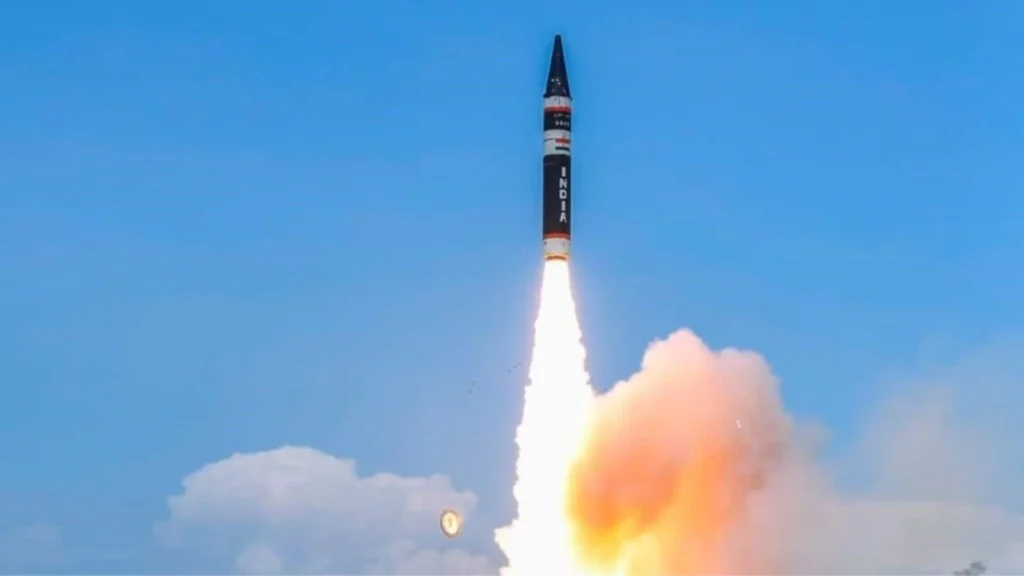India recently conducted a successful test launch of the new-generation nuclear-capable ballistic missile ‘Agni Prime’ (Agni-P) from Abdul Kalam Island off the coast of Odisha.
About the flight test:
- Agni-Prime’s flight-test was conducted by the Strategic Forces Command (SFC) along with the Defence Research and Development Organisation (DRDO).
About SFC:
- SFC, sometimes called Strategic Nuclear Command, forms part of India’s Nuclear Command Authority (NCA).
- Established in 2003, It is responsible for the management and administration of the country’s tactical and strategic nuclear weapons stockpile.
About Agni-P:
- Agni-P is a nuclear-capable new-generation advanced variant of the Agni class of missiles with a maximum range of 1,000 to 2,000 km.
- It is a two-stage canisterised solid propellant ballistic missile with dual redundant navigation and guidance system
- It is lighter than previous Agni series missiles, the new version will feature guidance by advanced ring-laser gyroscopes-based inertial navigation systems (INS).
- Since the missile is canisterised, it can be transported by road and rail and stored for longer periods, significantly reducing the time required for preparation and launch.
- It is first of a new generation of missiles introduced following the conclusion of the Integrated Guided Missile Development Program (IGMDP).
- According to reports, the missile uses a cold launch mechanism and can be fired in salvo mode.
About Agni missiles:
| Missile | Description | Range | Payload |
| Agni-1 | The first missile in the Agni series launched in 1983 by DRDO.It is Nuclear-capable. | 700 km | 1,000 kg |
| Agni-2 | Intermediate-range ballistic missile first test-fired in 1999. It is equipped with advanced high-accuracy navigation system. | 2,000 – 2,500 km | 1,000 kg |
| Agni-3 | Successor of Agni-2, an intermediate-range ballistic missile. | Up to 3,500 km | 1,500 kg |
| Agni-4 | Increased range missile.Test-launched in 2012, covering over 3,000 km in 20 minutes. Earlier known as Agni-2 Prime. | Up to 4,000 km | 1,000 kg |
| Agni-5 | Intercontinental ballistic missile. Three-stage missile, capable of delivering a 1.5-tonne nuclear warhead. Can cover most of Asia and parts of Europe. | Beyond 5,000 km | 1.5 tonne |
About Integrated Guided Missile Development Program (IGMDP):
- The IGMDP was a program that India began in 1983 to develop a range of missiles and gain self-reliance in missile technology.
- The program was conceived by Dr. APJ Abdul Kalam, who was the Director of Defence Research & Development Laboratory (DRDL).
- The missiles developed under the programme were:
- Short-range surface-to-surface ballistic missile Prithvi.
- Intermediate-range surface-to-surface ballistic missile Agni.
- Short-range low-level surface-to-air missile Trishul.
- Medium-range surface-to-air missile Akash.
- Third generation anti-tank missile Nag.
Ref:Source
| UPSC IAS Preparation Resources | |
| Current Affairs Analysis | Topperspedia |
| GS Shots | Simply Explained |
| Daily Flash Cards | Daily Quiz |



